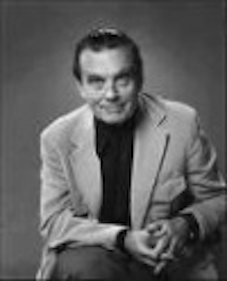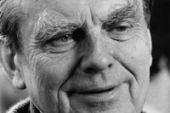Czeslaw Milosz - a life infused with faith

First published - 17 August 2004
The Nobel Prize-winning poet Czeslaw Milosz, died at his home in Krakow, Poland on Saturday. He was 93. Best known as a poet, Milosz also wrote novels and dozens of essays. His translations of Polish writers introduced many foreign readers to the literature of his homeland. His poems were an inspiration to the Solidarity trade union movement fighting the communist regime in Poland in the 1970s and '80s.
Faith infused all his writing. A committed Catholic, Milosz was drawn to the Book of Job, where suffering tests a man's faith in God but does not break it. Milosz translated many books of the Bible from Hebrew and New Testament Greek into Polish. His favourite books were Psalms, Job and Revelations.
Professor Robert Faggen, from Claremont McKenna College in California who edited Striving Toward Being: The Letters of Merton and Milosz (1997) said: "He had a profound understanding of the history of religion and the Christian church. One of the questions he would always be asking is: 'How could a just and good God have created a world so filled with cruelty and torture?' "
Professor Faggen said: "He is without question one of the heroic figures of 20th century poetry, although 'heroic' was a mantle he shunned. At the Solidarity monument in Gdansk, you have icons of three figures: Lech Walesa, Pope John Paul II and Milosz."
Faggen said the Pope and the poet began corresponding over Milosz's treatise on theology and its justifications of evil. "One of the things the Pope said to him was: "In your poetry, you take two steps forward and one step back.'"
Czeslaw replied: 'Holy Father, how in this century can I do otherwise?' "
Born in what is now Lithuania, Milosz moved to Poland and survived the Nazi occupation during World War II and the Soviet takeover that followed. His poetry gave witness, creating a literary record filled with anger and irony but not despair. Milosz credited French wartime philosopher Simone Weil for teaching him to live with contradiction. He wrote about this conflict in several poems.
Explaining his own rationale for the existence of God, he said: "It's not up to me to know anything about heaven or hell. But in this world, there is too much ugliness and horror. So there must be, somewhere, goodness and truth. And that means somewhere God must be."
Paying tribute to Milosz, Lech Walesa, former Polish president and Solidarity leader said: ""He inspired, encouraged and strengthened us. He belonged to the generation of princes, great personalities."
Czeslaw Milosz is survived by two sons. His first wife, Janina, died in 1986. His second wife, Carol, died in 2003. Although he was ill, Milosz kept writing until shortly before his death. In a poem called 'Meaning' he wrote in 1991: When I die, I will see the lining of the world The other side, beyond bird, mountain, sunset The true meaning, ready to be decoded.



















